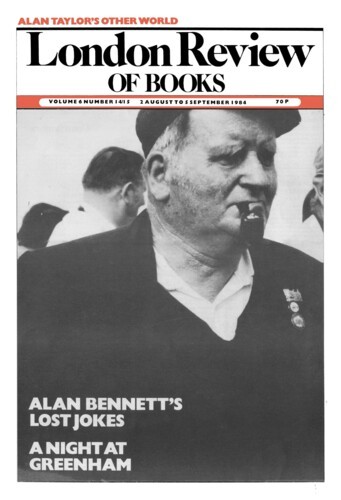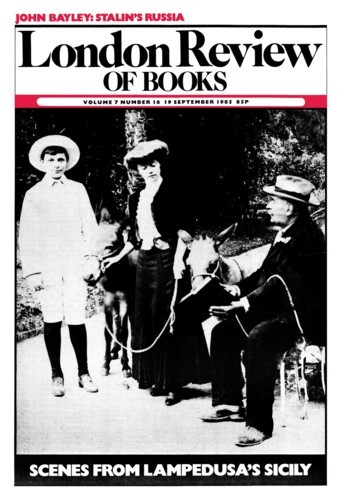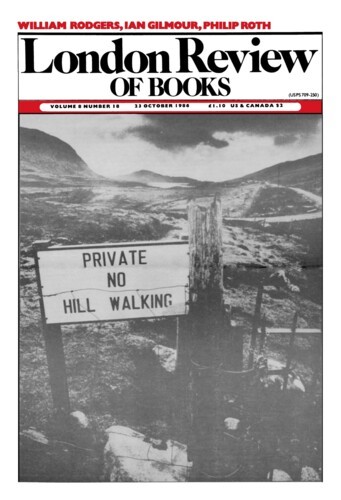Anthropologies
Edmund Leach, 2 August 1984
Khazanov’s global comparative study of pastoral nomadism is unique. The level of erudition may be indicated by the bare statistic that the bibliography runs to 48 closely printed pages of which 23 refer exclusively to works in Russian. For those who are not specialists in the field at this level of intensity, and perhaps even for those who are, the 16 pages of Ernest Gellner’s ‘Foreword’ provide essential reading. Khazanov’s book takes for granted a general framework of Russian Marxist ideas which will be unfamiliar to most English readers. Within that framework it makes a contribution to a long-standing theoretical debate about whether or not Pastoral Nomadism rates as a form of Feudalism, or of the Asiatic Mode of Production, or of something quite other. Gellner explains all this with great skill and warns the reader of some of the pitfalls that may be encountered in Khazanov’s terminology. Gellner himself steers clear of the controversy but is an interested party since he claims that Khazanov, and more particularly his older colleague G.E. Markov, have arrived independently at a view of nomadism which is closely related to that of Gellner’s own sociological hero, Ibn Khaldun.





